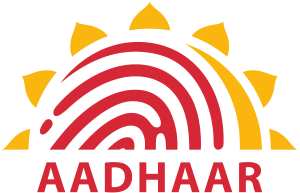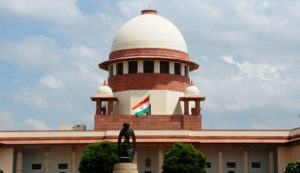
Supreme Court Expresses Concern Over Possibility Of Mass Surveillance Through Aadhaar
New Delhi: The UIDAI plea in Supreme Court said that Aadhaar was not to serve the purpose of carrying out surveillance of the citizens of the state, as the government has got many means to do it. The Supreme Court countered the plea by saying that technology is a “very powerful enable” of mass surveillance.

Chief Justice Dipak Misra along with a five-judge constitution bench heard petitions challenging Aadhaar and its enabling 2016 law. The bench red-flagged certain provisions of the Prevention of Money Laundering Act (PMLA) and Rules made under it and questioned the Centre whether how could bank accounts be suspended and then frozen if they are not linked to Aadhaar.
The recent testimony of Facebook CEO Zuckerberg before the US Congress was also a strong point raised by the bench to supports its view that technology was a powerful enabler of mass surveillance, which provides the ability to influence elections in a major democracy like the US.

“Can you deprive a person of his property (money)? Can a rule be made beyond the scope of the law? The consequence here leads to deprivation. One cannot withdraw his own money as the account is not linked… first, the account is suspended and then it may be blocked after six months. Can you do this,” asked the bench, which also comprised Justices AK Sikri, AM Khanwilkar, DY Chandrachud and Ashok Bhushan.
The petitioners also challenged The Prevention of Money Laundering Act’s rule 9(4) on the ground of proportionality for which the top court said, “what is the need to make Aadhaar compulsory when there are other officially valid documents available.”
Nowadays, the governments have been doing surveillance for important personalities and political opponents, and for that, it has got ample means to do, he said.
“No government needs Aadhaar to surveil its people. There are tools available to do this,” he said, adding that as an example, it can keep a tab on bank accounts for unusual activities under a master circular.
The bench responded to the possibility that days of Kharak Singh (who had moved Supreme Court against police surveillance long back) are gone, and now data has massive power which can provide “a goldmine of information” for commercial exploitation by private entities.
“The point is that technology is a powerful enabler of mass surveillance,” the bench further said, adding that elections in one of the most powerful nations in the world, has been believed to have been influenced due to misuse of leaked data.
The bench referred to the ongoing testimony of Facebook CEO Mark Zuckerberg by the US lawmakers who accused him of failing to protect personal and confidential information of many Americans from alleged Russians’ design to upset US Presidential polls.
Mr Dwivedi then said that UIDAI’s technology could not be compared to algorithms of company Google and Facebook and moreover, he cited section 33 of Aadhaar Act that makes misuse of data punishable and the law is more robust, and if there was an issue, it could be regarding its enforcement.
You May Also Read: Walmart May Buy Majority Stake In Flipkart, Deal To Be Closed By End-June: Sources